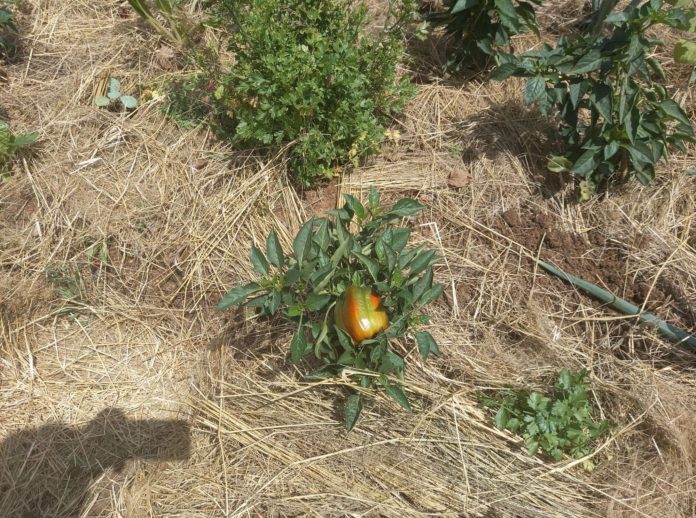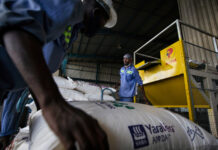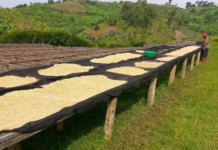Farmers in Zimbabwe have been urged to scale up the farming of chilli peppers to help build local community resilience through this viable livelihood option in the wake of climate change-related risks, a local agronomist has said.
Special Musakura, a Unicare company chilli agronomist said to develop a Middle Zambezi Landscape Conservation Strategy that increasing production of chilli would enhance livelihood earnings.
“Farmers must increase the production of chilli to earn better income and improve their livelihoods. They must not just grow chilli for subsistence or just to grow enough to scare away wild animals, but they must scale up their activities to grow more chilli,” he said.
“They must take chilli growing as a business and not just for subsistence.”
Unicare, a major chilli producing company works closely with the African Wildlife Foundation in Muzarabani and Mbire districts to promote the growing of chillie as an economic alternative for local communities in the Zambezi Valley.
Local communities not only use chilli farming as a natural income-generating solution, but as a tool to deter elephants from raiding their crops.
“Growing chillies enhances their agricultural resilience. It’s a drought-resistant crop that can thrive in dry and arid regions,” said Musakura.
“We want farmers to grow more and earn more. It saves our sensitive ecosystems in the Zambezi Valley from deforestation.”
Chilli peppers are a simple and cost-effective solution to the human-wildlife conflict.
When compacted into blocks or mixed with grain crop husks or cow dung and burned, the chillie’s pungent smell repels most wildlife, including elephants.
The chilli has the same effect when mixed with oil and smeared on strings or rugs hung on the edges of homesteads in local communities living close to national parks – it repels elephants. Farmers reap more due to reduced attacks from elephants, but also sell the chillies to diversify their income.
This also saves elephants from retaliatory killings by farmers trying to protect their farms and homesteads from attacks.
Unicare has set the producer price for chillies at US$2.75 a kg for the 2022 marketing season, up from US$2.30 last year.
“We have increased the rates to cushion farmers from rising input costs,” said Musakura.
“In the 2021 marketing season, we bought between 35 and 40 tonnes of chillies from Muzarabani, Hurungwe, Mbire and other farmers around the country. We are targeting to get more than 60 tonnes of chillies this season.”
Unicare’s other sister company – Agri-Leads was looking to buy more than 100 tonnes of chilli this season.
The companies export chilli products to South Africa and Zambia.
Smallholder farmers rely heavily on rain- fed agriculture to grow chillies generating employment and livelihoods.
Increasingly unpredictable rainfall and more frequent severe weather events (high winds, extreme heat, floods and droughts) have resulted in declining crop yields, increased crop losses, disruption of the agricultural calendar, dwindling farm incomes and escalating degradation of land and natural resources.
Experts say this has resulted in increased food insecurity with women and children and the rural poor amongst the worst affected.
Growing chilli peppers can help build the resilience of local communities.
Zimbabwe has good soils and climate that favour production of a variety of chilli peppers.
The country currently exports chillies to the United Kingdom and Finland including South Africa and Zambia, but has potential to diversify into other markets like Botswana, the Netherlands and Poland.
Zimbabwe is lagging behind in producing and exporting chilli peppers, other African countries such as Morocco, Uganda and Kenya, are exporting to Europe and other world markets.
The biggest global exporters of dry chillies are India, China and Peru.
In Africa, nations producing bird’s eye chillies, in addition to Zimbabwe, are Kenya, Ghana, Uganda, Morocco, Zambia, Mozambique and South Africa.









